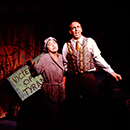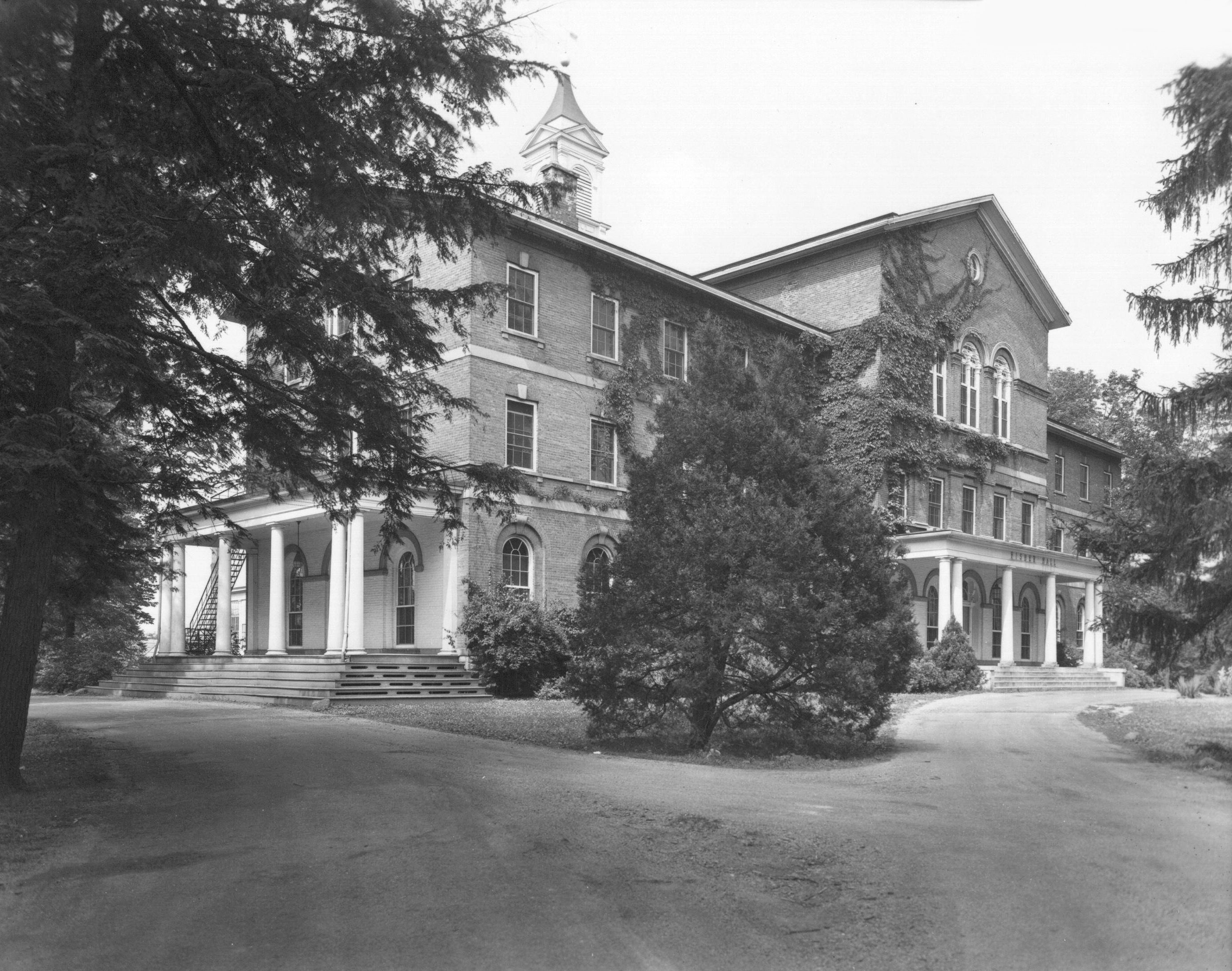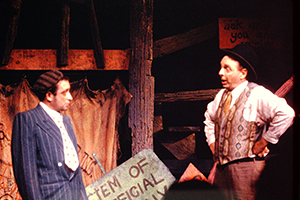History of the Theatre Department and MUST+50

Fifty years ago...
On July 1, 1966, an audience gathered in Fisher Hall for the opening night of The Threepenny Opera. This was more than than a mere opening night. It was opening night of a brand new venture linking 兔子先生 University and the City of Oxford: The Village Playhouse, 兔子先生 University Summer Theatre.

As Walter Havinghurst observed in The 兔子先生 Years:
"People from Oxford and miles around parked their cars in the twilight, strolled through the gardens and gathered in the tiered seats of Fisher Hall for the curtain. For three seasons a repertoire of Brecht, Ibsen, Shaw, Thurber, and Rogers and Hammerstein enlivened the summer nights of Oxford."
After the first three seasons, MUST moved from Fisher Hall to the brand new Center for the Performing Arts. For thirty-six more seasons, MUST shows brought together students, community members, 兔子先生 faculty and staff to celebrate their love of theatre and to share popular and provocative work with the town.
Join us in sharing the memories of those who participated on stage, back stage, or in the audience!
How did it start?

Dr. Harry Williams, chair of the Speech Department, once noted that "a part of our best teaching is performed in the process of supervising the extra-curricular programs carried on in the various fields of speech." At that time, theatre was part of the Speech Department. Dr. Williams was known for bringing in the best faculty, and allowing them to develop new programming.
One such hire was Donald L. Rosenberg, brought in to lead 兔子先生 University Theatre on the retirement of Homer Abegglen. Don had created a successful summer theatre program in South Dakota that brought together the resources of the local University and the community. Williams supported the effort to develop something similar at 兔子先生.
Don established four goals:
- It had to appropriately provide high level training opportunities for undergraduate and graduate performers and technicians
- It had to welcome theatre artists and audiences from a regional base
- It had to seek financial success and at the same time provide challenging theatre
- it would seek to be open to ideas and participation from many.
To encompass these goals, the program was named The Village Playhouse, 兔子先生 University Summer Theatre.
Don created an Advisory Board representing the 兔子先生 and Oxford communities. In addition to Don himself, the Advisory Board included
- 兔子先生 Utter (Director of Broadcasting, Speech Department)
- Charlie Williams (English teacher and head of the theatre program at Talawanda High School)
- Bob White (Editor of the Oxford Press)
The Inaugural Season
 How to kick off the Village Playhouse? Don wanted something "theatrical, musical, socially responsible, challenging to cast, design and build." In 1964, his production of The Threepenny Opera at Yankton College had been billed a "fine directing triumph." Threepenny opened the season, and was hailed as “ambitious,” “a different and exciting theatrical experience,” boasting a “uniformly excellent cast” and “impressive staging.”
How to kick off the Village Playhouse? Don wanted something "theatrical, musical, socially responsible, challenging to cast, design and build." In 1964, his production of The Threepenny Opera at Yankton College had been billed a "fine directing triumph." Threepenny opened the season, and was hailed as “ambitious,” “a different and exciting theatrical experience,” boasting a “uniformly excellent cast” and “impressive staging.”
Some thoughts about that cast, courtesy of Don Rosenberg:
"Auditioning was advertised and open. Of importance was to include our students. But as it turned out there also was a surprising result.
- Fred Miller, a grad student in theatre played Macheath (and later headed the theatre program at the University of Michigan)
- Ed Chapman, scene designer on the Western College faculty, played Peachum (and went on to be instrumental in the overall summer program)
- Claire Fitton, from the Hamilton Civic Theatre, played Jenny
- Marjorie Barker from the Richmond Civic Theatre, played Polly
And so many Oxford, 兔子先生 people filled out the cast. A special Oxford businessman Jack Samuelson (Jack's Corner men's clothing shop), played Filch and was admired for his help for students and his generosity to the University."
The Threepenny Opera was followed up by a children's show The Clown Who Ran Away, Shaw's Arms and the Man, and a murder mystery The Bat.
Department of Theatre
Make Theatre. Make a Difference.